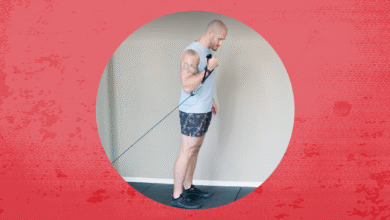The New Rules for Having Sex in Post-Roe America

I KNOW YOU hear this a lot, but I’m just going to say it again anyway: It’s a scary time to be a woman. Especially when you’re a woman who’s fucking.
Since the overturning of Roe v. Wade in 2022, sex has become inherently more serious, and the stakes are higher than ever for couples who can get pregnant. 41 states have bans on abortion to varying degrees. Access to birth control is teetering on thin ice. And on the eve of President Trump’s inauguration, our leaders actively took down the website “reproductiverights.gov,” showing just how little they think of the cause. Let me be clear: Sex has always been fundamentally more complicated for women than for men. But in our current political climate, the risk for women is greater than ever.
If you are a man reading this, you may feel powerless, or like you could never truly understand, so what’s the point in trying. But the truth is, there’s actually a lot you can do for your female sexual partner(s) to make a difference in their experience. To gather concrete tips, I spoke with women across the country, so they could tell you exactly what they want from the men they are sleeping with. Whether it’s with a one night stand or long-term partner, here’s how you can help make sex a little less scary.§§§
#1: Always provide condoms. More than one.
Elena is a 24-year-old single gal living in New York, and she has one message for the men she sleeps with: “Women carry so much weight when it comes to birth control, so the least a man can do is provide the condoms. Always.” This was a sentiment echoed throughout almost all of my conversations, with women wanting their partners to be proactive in the areas they can control, a big one being condom usage. Elena added that bringing one condom doesn’t cut it: It could break, or maybe you just want to go another round, and being prepared with multiple condoms can do wonders for alleviating any in-the-moment stressors.
Another reason why providing condoms is key, especially in a casual hook-up setting? To ease the morning after anxiety. “There’s a lot of trauma, at least for me, around condom usage or lack thereof,” Elena told me. “You know, waking up the next morning not knowing if they even had a condom on.” That experience is stressful and traumatic on a good day, but in our current climate? It’s scary AF.
You may be wondering, “But what if she’s on birth control?” First off, STDs are real and range from inconvenient to life-altering, so condoms are key to prevent the spread of infection. Secondly, everyone’s experience on birth control is different, and many want an extra level of security (hi, that’s me! Hypochondriac + generalized anxiety girlie!). The best thing you can do is assume condoms will be used, and let her lead the way if she wants to forgo.
#2: Take the time to learn about her birth control experience.
Caroline is a 27-year-old living in Atlanta, Georgia—one of the states with a trigger law banning abortion at around 6 weeks of pregnancy. She’s aligned that bringing condoms is a must early-on (“The resistance to condoms is insane to me. You have to come prepared.”), and Caroline emphasized that once you’ve gotten more comfortable with someone, it’s important that they show an investment in your personal birth control experience.
“There is a layer of birth control that men don’t and won’t understand,” Caroline said. “But you do have to be engaged enough in the experience that your partner is having to ask those questions.”
For example: “Are you using birth control? Do you mind sharing how it works for you? How does it impact your sexual experience, and how can I help ease any difficulty?” Caroline is an IUD girl and has found that certain sex positions are more or less comfortable with the placement of it. Since she and her boyfriend have regular convos about her birth control, he’s up to date and aware of how to make her feel best—inside and outside the bedroom.
Let’s be real: If you are having sex with a woman who is on birth control, she is doing you both a favor by taking on that physical and mental burden. By asking questions and getting educated, it makes it clear that you’re in it together.
#3: Cultivate a safe space.
“Sex is a very vulnerable thing, and feeling safe is so important,” said Sarah, a 30-year-old living in Brooklyn. This advice truly applies to every sexual encounter, whether it be the very first bang or years into a relationship—safety and comfort is crucial for all parties involved.
So, what does a safe space, or safe person, look like? For Sarah, she feels most at ease with a partner who who validates her feelings about the state of our reproductive freedom. “The last thing I need is a sexual partner mansplaining solutions to me, or saying, ‘Actually, abortion is probably not going to be affected,’” she says. “I just want to hear, ‘I’m really sorry this is going on. It’s a very scary time. I’m also scared.’ That reassures me that you are a safe person.”
Cultivating safety and security can go beyond being a validation kink. For me, I feel the safest when consent is loud and clear. For Caroline, she can best relax in an environment that’s welcoming and clean (“Why would you be a good steward of my internal organs if you can’t even keep toilet paper in your bathroom?”). A safe space looks different for everyone: Don’t be afraid to ask your sexual partner what it feels like to them.
#4: Be open to having the “What if?” conversation.
For 32-year-old Chelsea, pregnancy comes with a lot of risks. “I take a daily medication that’s unsafe for child development,” she shared. “And I have an IUD, so I’m at a much higher risk for an ectopic pregnancy.” On top of that, she lives in Kentucky, a state where abortion is illegal with very limited exceptions. Chelsea and her partner may want kids in the future, but an unplanned pregnancy could be as severe as life or death—for her, and for the fetus.
The best thing her partner does to help? He talks through the What Ifs. “There are so many things that go through my head, so it helps being able to sit with him and have the ‘What if?’ conversation, where we talk through possible outcomes, alternatives, and solutions, helps me have that bit of control,” Chelsea shared.
The “What if?” spiral is real, and it’s normally inside our own heads (and search history). What if I’m pregnant? What if I need Plan B? What if I need to cross state lines for an abortion? As a man in a partnership, if you are able to bring those thoughts outside of her internal dialogue and in turn become a sounding board, I guarantee that she will feel less alone.
#5: Recognize that in every sexual interaction, the stakes are higher for her.
“What do you wish more men could understand?” was a question I asked every person I interviewed.
“I wish that men could understand what it actually is like to have sex when your body is so politicized. Genuinely, your person is at risk,” Sarah told me.
“Women stand to lose so much more,” Caroline replied.
“I wish they could understand the stakes,” said Dana, a 31-year-old born with Ebstein’s Anomaly, a heart condition that can cause pregnancy to be high risk.
“I want them to understand that being pregnant, your life is actually at risk,” Katie told me, a 32-year-old expecting her first child in Kentucky.
The answer was unanimous, and these women did not stutter: They want you to know that the stakes feel high. Whether you’re a fuck buddy or trying for a baby, there are inherent health risks involved when pregnancy is a possibility—planned or unplanned. Take this information, and keep it with you in every sexual interaction going forward. By letting her know that you recognize she has more to lose, you can make her feel less alone and more understood. Armed with the right information, you have the power to make sex less scary.



